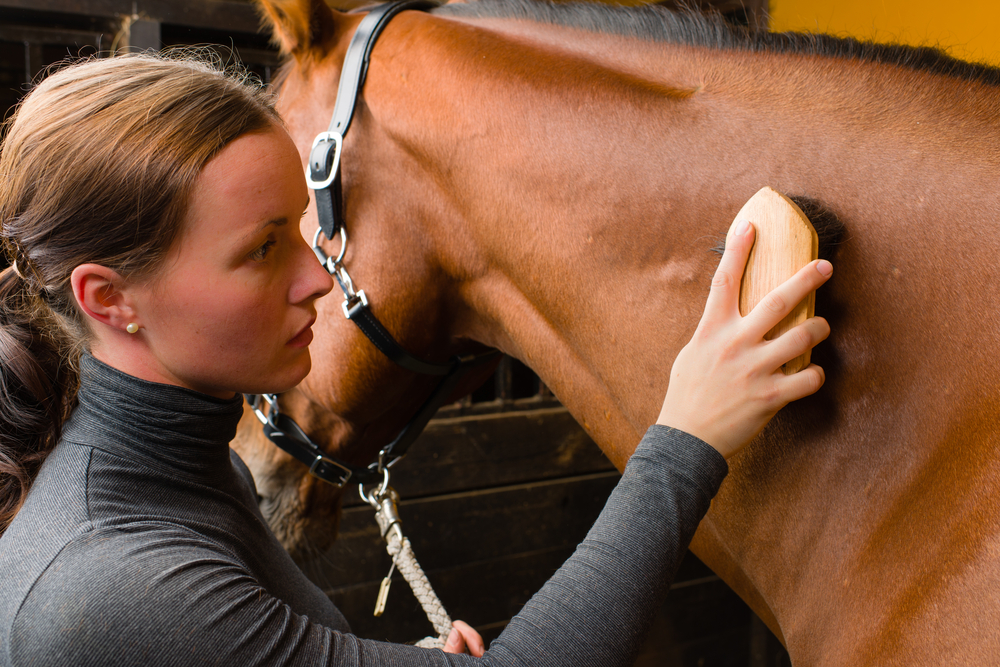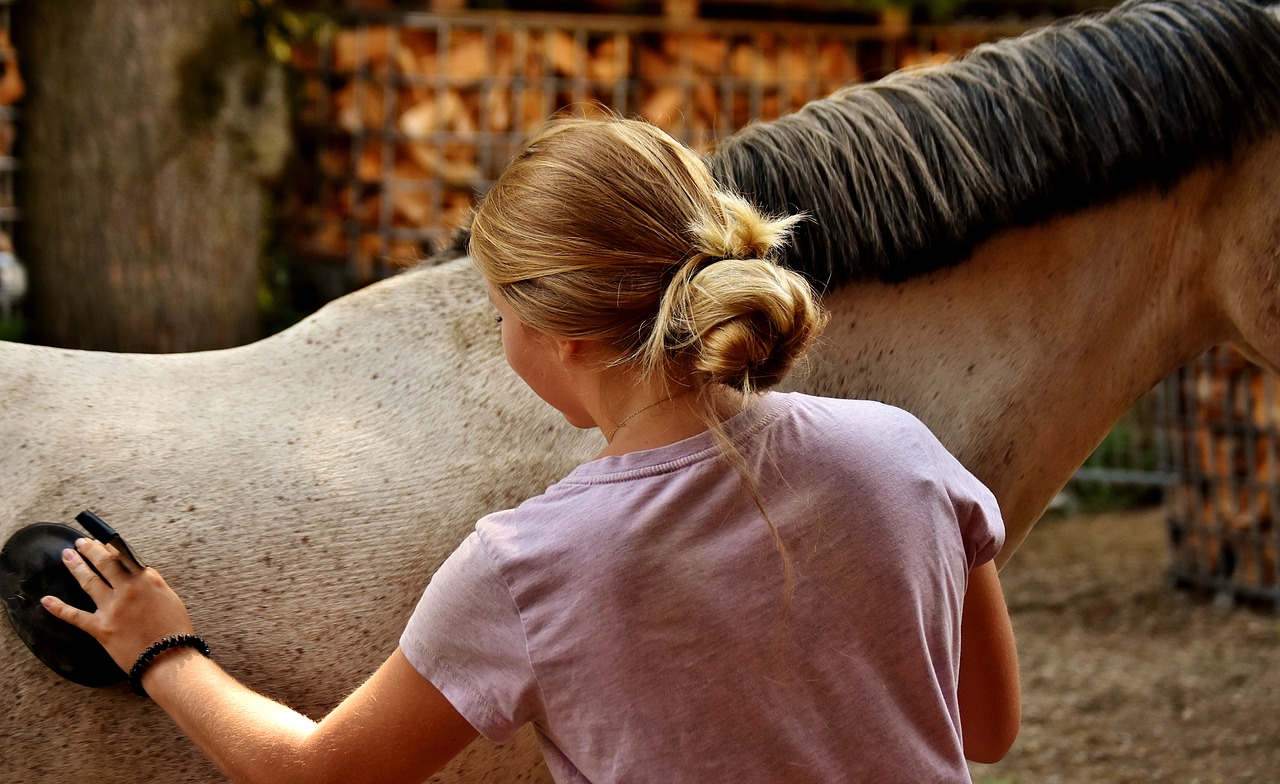The importance of senior horse digestive support cannot be overstated. As horses age, their digestive systems undergo changes that can significantly impact their overall health and well-being. Providing the right support can help ensure your senior horse enjoys a comfortable and healthy life. In this article, we will explore the key aspects of supporting the digestive health of senior horses, offering practical advice and insights for equestrian enthusiasts.

Understanding the Aging Digestive System
As horses age, their digestive systems naturally become less efficient. The production of digestive enzymes decreases, and the absorption of nutrients can be compromised. This can lead to weight loss, malnutrition, and other health issues. Understanding these changes is the first step in providing effective senior horse digestive support.
Why Senior Horses Need Special Care
Senior horses require special care because their nutritional needs change over time. They may need more easily digestible food and supplements to maintain their health. Additionally, older horses often have dental issues that can affect their ability to chew food properly, further complicating their dietary needs.
Dietary Adjustments for Senior Horses
One of the most crucial aspects of senior horse digestive support is making appropriate dietary adjustments. Providing a diet rich in fiber, vitamins, and minerals is essential. Consider incorporating beet pulp or senior horse feeds, which are designed to be more easily digestible.
Fiber: The Cornerstone of a Healthy Diet
Fiber is an essential component of a horse’s diet, especially for seniors. It aids in digestion and helps keep the gut healthy. High-quality hay and pasture grass are excellent sources of fiber. Learn more about the hay requirements for senior horses.
Adding Supplements for Extra Support
Supplements can play a vital role in supporting the digestive health of senior horses. Probiotics, prebiotics, and digestive enzymes can improve gut health and nutrient absorption. For more information, visit our guide on supplements for aging horses.
Common Digestive Issues in Senior Horses
Senior horses are prone to certain digestive issues, such as colic and gastric ulcers. Understanding these problems and taking preventive measures can help maintain your horse’s health.
Recognizing Signs of Digestive Distress
It’s important to recognize the signs of digestive distress in senior horses, which may include weight loss, diarrhea, or a change in eating habits. Early detection and intervention are crucial.
Preventing Colic in Older Horses
Colic is a common and potentially serious issue in senior horses. Ensuring they receive regular exercise, have access to clean water, and follow a consistent feeding schedule can help prevent colic. Learn more about hydration tips for senior horses.
Dental Care’s Role in Digestive Health
Proper dental care is essential for maintaining the digestive health of senior horses. As horses age, their teeth can wear down or develop sharp edges, making it difficult for them to chew properly.
The Importance of Regular Dental Check-Ups
Regular dental check-ups can help identify and address dental issues before they affect your horse’s digestion. Problems like tooth grinding can be addressed with the right care. Visit our article on tooth grinding problems to learn more.
Ensuring Proper Chewing and Digestion
Ensuring your horse can chew properly is integral to their digestive health. Soft or soaked feeds can be easier for senior horses to chew and digest, reducing the risk of choking and other issues.
Monitoring and Adjusting Feeding Practices
Monitoring your senior horse’s weight and condition is essential. Regularly assessing their body condition and adjusting their diet accordingly can help maintain their health.
Using Body Condition Scoring
Body condition scoring is a useful tool for determining whether your horse is at a healthy weight. Adjusting feed intake based on these scores can help prevent both underfeeding and overfeeding.
Creating a Consistent Feeding Schedule
A consistent feeding schedule supports digestive health by keeping the digestive system active and reducing stress. Ensure your horse has access to food throughout the day, mimicking their natural grazing behavior.
Behavioral and Environmental Factors
Behavioral and environmental factors can also impact a senior horse’s digestive health. Stress, for example, can lead to digestive issues, so it’s important to create a calm and stable environment.
Managing Stress in Senior Horses
Reducing stress through proper care and management practices can significantly benefit your horse’s digestive health. This includes providing companionship and ensuring a comfortable living environment.
The Benefits of Regular Exercise
Regular exercise is beneficial for digestion and overall health. Even senior horses can benefit from light, consistent exercise that supports digestive motility and prevents obesity.
Consulting with Professionals
Working with veterinarians and equine nutritionists can provide valuable insights and guidance for supporting your senior horse’s digestive health. They can help tailor a diet and care plan to your horse’s specific needs.
When to Seek Veterinary Advice
If you notice changes in your horse’s eating habits, weight, or overall health, consulting a veterinarian is essential. They can diagnose potential issues and recommend appropriate treatments or dietary adjustments.
Collaborating with Equine Nutritionists
Equine nutritionists can offer expert advice on dietary formulations and supplements that can benefit your senior horse. They can help ensure your horse receives the necessary nutrients for optimal health.
Conclusion
Providing effective senior horse digestive support is crucial for maintaining the health and well-being of aging horses. By understanding the unique needs of senior horses and making appropriate dietary, dental, and environmental adjustments, you can help ensure your horse enjoys a long, healthy life. For more detailed guidance, consider reading the care for older horses guide from expert sources.

FAQ Section
How often should I adjust my senior horse’s diet?
It’s recommended to review and adjust your senior horse’s diet every six months or as needed based on their body condition and health status.
What are common signs of digestive issues in senior horses?
Common signs include weight loss, diarrhea, changes in eating habits, and colic symptoms. It’s important to consult a veterinarian if you notice any of these signs.
Can stress impact my senior horse’s digestion?
Yes, stress can negatively affect digestion in horses. Providing a calm environment and proper care can help mitigate stress-related digestive issues.
For more information, don’t forget to check out our article on senior horse best practices.
This article contains affiliate links. We may earn a commission at no extra cost to you.
